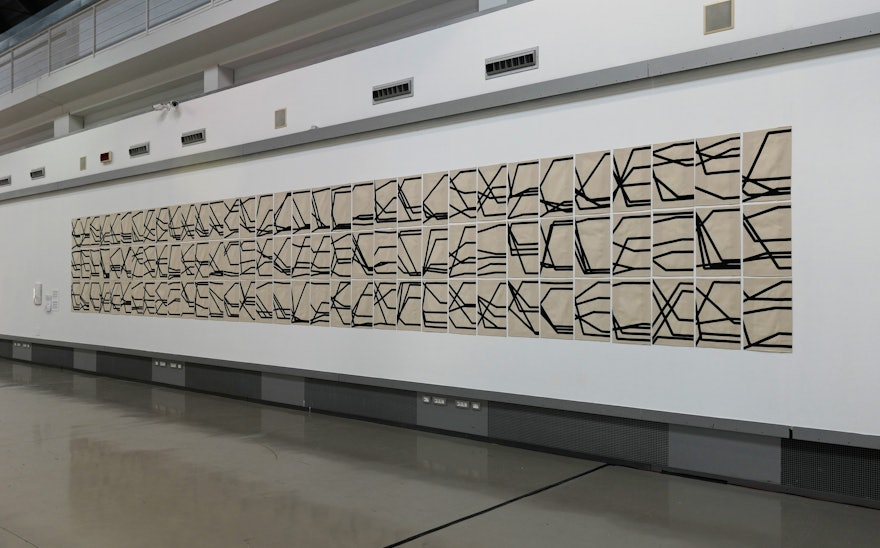Each person’s life may be unique and different, but when seen together, these distinct paths begin to form patterns. Pentagram partner Giorgia Lupi and artist Ehren Shorday explore this subject through the lens of personal data in Incroci (Crossings), a new installation commissioned by Fondazione Merz for its group exhibition Ordo naturalis, ordo artificialis (Natural order, artificial order), presented at ZAC – Ziza Art Contemporanee in Palermo, Sicily.
Curated by Beatrice Merz and Agata Polizzi, Ordo naturalis, ordo artificialis brings together a diverse group of artists who look at interconnected and multiple systems in their work. The show is the second segment of L’altro, lo stesso (the other, the same), the inaugural exhibition of the Foundation’s ZACentrale program, which has given the Turin-based contemporary art center a satellite space in the warehouses of Palermo’s industrial district.
Incroci charts significant moments in the lives of 99 people as graphs of intersecting lines, creating a one-of-a-kind data portrait for each individual. The pieces are painted in black on raw canvas (each approximately 15 x 14 inches) and arranged in three rows.
To create the data set for the paintings, strangers were asked to share five dates (as day/month/year) that they saw as significant moments in their life so far. These were required to start with the day they were born, and finish with a date during the past two years––since the start of the Covid-19 pandemic. Lupi and Shorday invited their social media to participate in an online survey (now closed) and received almost 1,400 responses in the first 24 hours. Of these submissions, 99 are exhibited at ZACentrale.
Each black line represents one date, connecting the day (along the left vertical side) with the month (horizontal side) with the year (on the right vertical side, divided according to the time span from a person’s birthday to the present). Seen in parallel, these timelines––some almost identical, some very different––offer an opportunity to reflect on the collective and personal hallmarks of memory.
Established in 2005, the Merz Foundation is named after Mario Merz, the Italian artist who was part of the influential Arte Povera (“poor art”) movement in the 1960s. Arte Povera advocated a return to simple objects, materials and messages in art, and making the everyday meaningful. Many of these same principles are echoed in the “data humanism” that Lupi uses in her own work, which seeks to make data more personal and accessible.
Other artists featured in Ordo naturalis, ordo artificialis include Mario Merz, Marisa Merz, Alfredo Jaar, Basim Magdy, and Joana Hadjithomas and Khalil Joreige. The exhibition remains on view through 11 September 2022.

